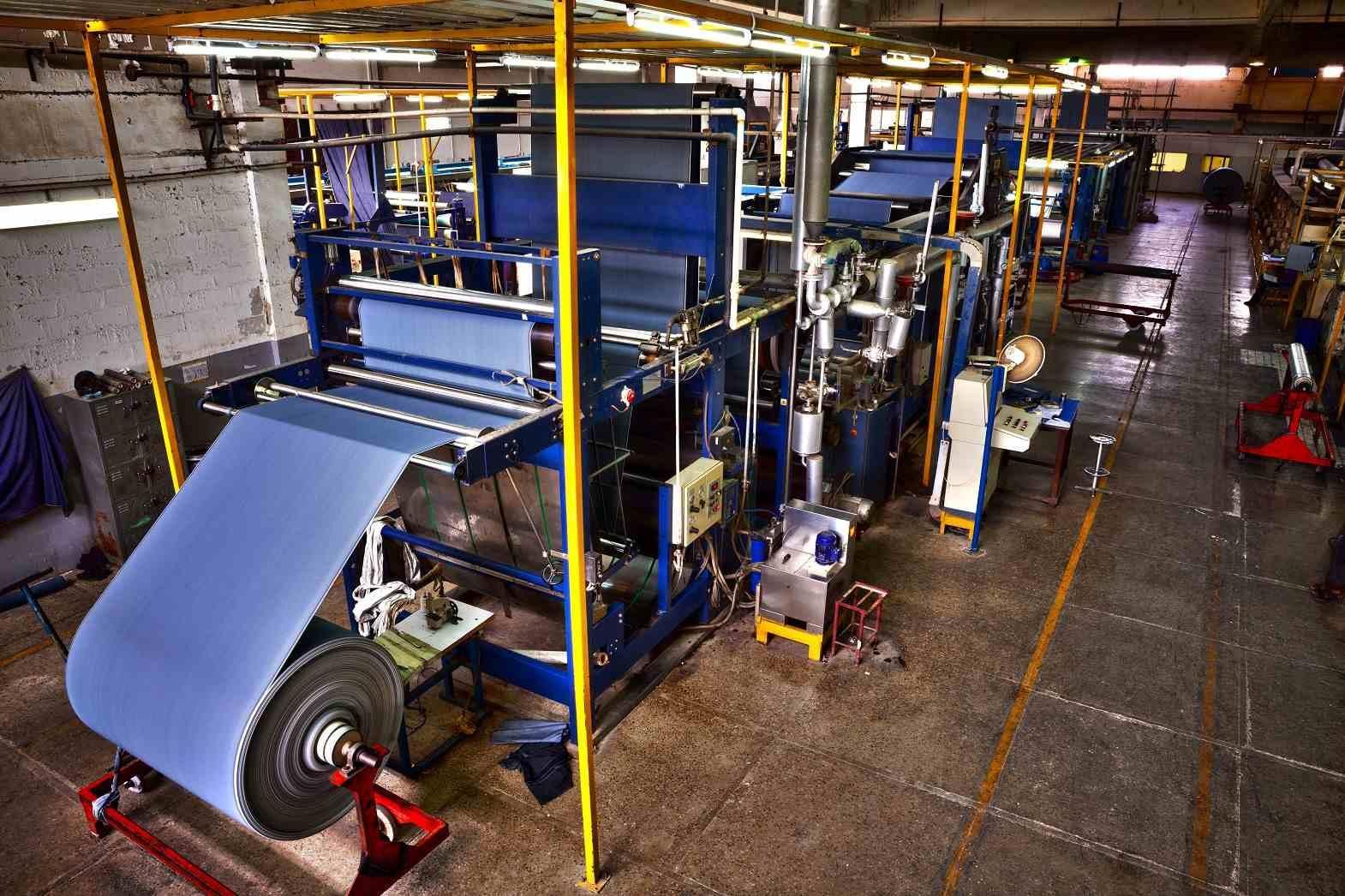Textile operations such as spinning, weaving, and processing are carried out in the mills in Bhilwara, and hence the industry is also the largest employer in the unorganized and organized sector, with over 75,000 individuals working in the sector to boost the state's economy. The district is home to as many as 16 spinning mills in a large sector along with 5 open spinning units, which manufacture around two lakh tonnes of polyester/viscose and cotton yarn every year. With such large production churned out per annum, Bhilwara district alone is said to meet 44 percent of the State's yarn production capacity.
There are 7.67 lakh spindles and 19,500 rotors in the spinning mills in the district. The mill sectors of Bhilwara have 48 knitting machines and more than 2100 looms enriching its capacity of production. Bhilwara has a strong history of textiles dating back to the 60s when 200 second-hand looms from the British Raj were being run, and a large number of cotton yarn-producing plants were operating. But it was only when in 1988, the Industrial licenses were withdrawn to give an impetus to the industrial development, the textile industry flourished. Between the years 1988 to 1990 over 70 weaving units were established.
The spinning industry has a significant presence in Bhilwara. Out of the 29,200 rotors that are installed in the state of Rajasthan, the district accounts for a majority of 19,500. The spinning machines used in the industries are imported from countries like Italy, Switzerland, and Germany. The district has 45 percent spindles and 67 percent rotors in the spinning sector. With such capacities, Bhilwara has become a prominent textile centre in India. Technologies like air jet spinning are used only in Bhilwara, and also, it is the only district producing silk yarns in the state Rajasthan.
A well-functioning weaving sector is another feather in the cap of Bhilwara's prospering textile industry. The weaving cluster in the district occupies 440 units. Rajasthan has 22,000 power looms, and out of which 17,000 can be found in the district of Bhilwara, comprising 77 percent of the state's total capacity. Over 70 crore meters of different blends of polyester fabrics such as polyester-wool, polyester-viscose-modal, polyester-viscose-elastane, and polyester-wool elastane are being produced in the district.
Bhilwara is a popular destination in the textile industry that manufactures suiting materials which are exported. The annual export from the district is expected to be around 7-8 crore metres and worth rupees 550 crores. The industry uses technologically advanced looms like airjet imported looms and shuttleless looms.
Apart from weaving and spinning, the denim sector is also very dynamic in the industrious district. The companies producing denims currently manufacture over 1.50 crore metres per year while some large scale manufacturers have the potential of producing even more than 3 crore metres annually.
Yet another major centre in Bhilwara for textiles is processing sector. Being the leader in spinning of polyester/viscose blended yarn, the district is the main hub for processing it too for suiting and shirting in the whole of Rajasthan. There are close to 20 processing houses in Bhilwara, along with 1 in Alwar, 5 in Balotra, and 2 in Banswara. The processing houses of Bhilwara have over 75 stenters, 416 chambers, and altogether process nearly 573 lakh metres every month. The district of Bhilwara has a processing capacity of approximately 70 to 75 crore metres per annum constituting 85 percent of the State's total processing capacity.
Bhilwara is also slowly tapping the potential in home textiles and home furnishings. A couple of organizations are into producing high quality and functional products like flock, Velcro fabrics, thermal curtains, and upholstery fabrics. The continuous support from the state government and bodies like Mewar Chamber of Commerce and Industry has made the town reach excellence in matters of export. Moreover, the central government has provided financial support through Market Access Initiative Scheme for developing technologically focused services.
Under Assistance to States for Developing Export Infrastructure and other Allied Activities (ASIDE) special aid is provided to the town of Bhilwara for developing infrastructure facilities for better production capacities. Besides this, the biggest benefit to the town has been the declaration of Bhilwara as one of the Mega Powerloom Cluster in the year 2009 by the Ministry of Textiles. Under which a 70 crore assistance will be provided for improving Bhilwara's textile testing facilities, export promotion facilities, and infrastructures.
Clearly the district of Bhilwara has a huge potential and is a popular textile destination not just in the country but is also gaining traction in the international market because of its huge export market.
References:
Mccibhilwara.com









Comments